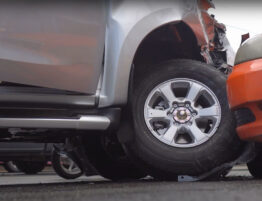
What does Contributory Negligence mean?
When a plaintiff does something unreasonable that contributes to their injuries from an accident, then there could be contributory negligence. The Court will look to see if the plaintiff exercised reasonable care in circumstances where there was the possibility of danger.
What is an example of contributory negligence?
There are many examples of what could constitute contributory negligence, but a few common examples are:
- failing to exercise reasonable care while walking on a slippery sidewalk or other public places
- provoking a dog, leading to a dog bite
- wearing inappropriate footwear outside in the winter (eg. wearing sandals in the winter)
- purchasing a product and using it in a way not recommended by the manufacturer
- jaywalking across a street
What is considered negligence in a car accident?
- not maintaining your vehicle so that it is safe to be operated
- failing to wear a seatbelt while in a vehicle
- failing to obey speed limits
- driving a vehicle while distracted
- failing to obey traffic lights or signs
Can I Make a Claim for Damages if I Contributed to the Accident?
When an accident occurs, it must be determined who was at fault for causing the accident. In some cases, both people involved may have been partially at fault. If you are injured in an accident, but your own actions contributed to your injuries, you can still bring a claim for damages. The degree to which your own actions contributed to your injuries will be assessed by a Judge, and your claim for damages would be reduced to account for your contributory negligence.
Contributory negligence must be proven by the defendant. If proven, it is a partial defence to a plaintiff’s claim, but it does not defeat a plaintiff’s claim entirely. Ahlstrom Wright’s lawyers can ensure that if you were contributorily negligent in an accident that you still receive fair compensation for what the other person did to you.
Failure to Mitigate Damages (under general PI section)
If you are injured because of someone else’s negligence, you are required to do everything reasonably possible to minimize your losses. In the case of personal injuries, you must attend medical treatments and follow reasonable medical advice to ensure that your injuries heal as quickly as possible. This also means not returning to work or engaging in any physical activities until your medical professionals have cleared you to do so. On the other hand, once you have been cleared to return to work, you must take reasonable steps to return to your old employer, or seek alternate employment.
If you don’t do everything possible to get better and reduce your damages, then the Court could find that you have failed to mitigate your losses. In that case, the Court will reduce the compensation that you are entitled to receive from the defendant to take into account the fact that your actions worsened your losses.
Do you require a Personal Injury Lawyer?
Have you been hurt in an accident, or do you need defense in a case where you feel Contributory Negligence is a factor?
Contact Ahlstrom Wright for a free case review
Call us toll-free 1-844-558-8750
or Email us at lawyers@ahlstromwright.ca









